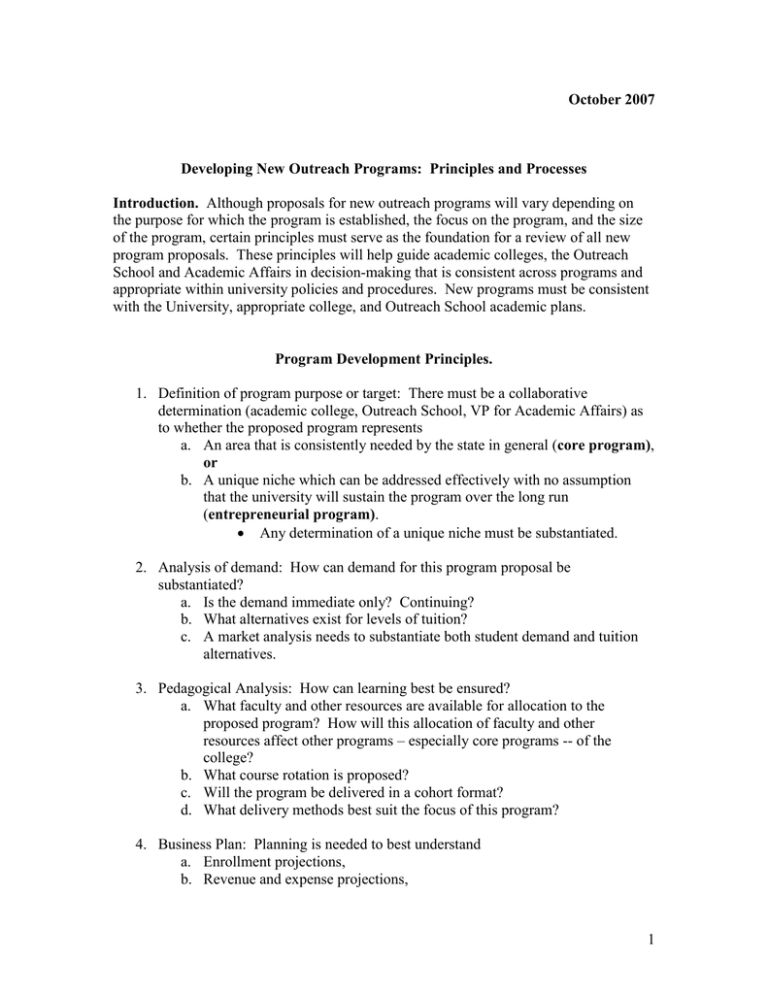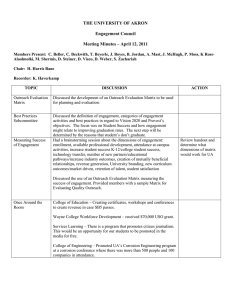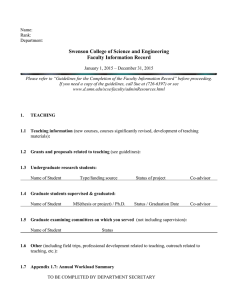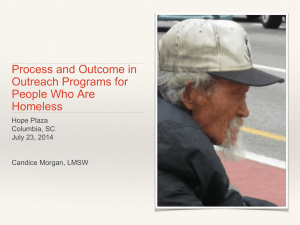New Outreach Programs - Principles
advertisement

October 2007 Developing New Outreach Programs: Principles and Processes Introduction. Although proposals for new outreach programs will vary depending on the purpose for which the program is established, the focus on the program, and the size of the program, certain principles must serve as the foundation for a review of all new program proposals. These principles will help guide academic colleges, the Outreach School and Academic Affairs in decision-making that is consistent across programs and appropriate within university policies and procedures. New programs must be consistent with the University, appropriate college, and Outreach School academic plans. Program Development Principles. 1. Definition of program purpose or target: There must be a collaborative determination (academic college, Outreach School, VP for Academic Affairs) as to whether the proposed program represents a. An area that is consistently needed by the state in general (core program), or b. A unique niche which can be addressed effectively with no assumption that the university will sustain the program over the long run (entrepreneurial program). Any determination of a unique niche must be substantiated. 2. Analysis of demand: How can demand for this program proposal be substantiated? a. Is the demand immediate only? Continuing? b. What alternatives exist for levels of tuition? c. A market analysis needs to substantiate both student demand and tuition alternatives. 3. Pedagogical Analysis: How can learning best be ensured? a. What faculty and other resources are available for allocation to the proposed program? How will this allocation of faculty and other resources affect other programs – especially core programs -- of the college? b. What course rotation is proposed? c. Will the program be delivered in a cohort format? d. What delivery methods best suit the focus of this program? 4. Business Plan: Planning is needed to best understand a. Enrollment projections, b. Revenue and expense projections, 1 c. Length of program offering (e.g., will more than one rotation of classes be offered?), and d. Financial incentives for the academic college and the Outreach School (these should be based on percentages of available funds after all expenses, both direct and indirect, are paid). 5. Maintaining Access in entrepreneurial programs: a. In order to maintain the mission of UW as a land grant university by ensuring that qualified Wyoming students are not priced out of the market., a portion of revenues from entrepreneurial programs should be used to support access for qualified Wyoming students (e.g., scholarships made available, considered on the basis of the revenues available and the number of students in the program). 6. Adherence to University policies and procedures: a. Academic Affairs should be informed about each new program proposal from the initial stages. b. University support units necessary for program success should be informed early in the discussions (e.g., University Libraries, Center for Advising, Student Affairs). c. Any proposals for supplemental pay must be specified during program development. d. Once the academic college and the Outreach School have agreed to the specifics of a proposal, the proposal should be forwarded to the Vice President for Academic Affairs for approvals through appropriate university processes. 7. Assessment: The program will be assessed regularly to understand a. Student learning, b. Student demand, c. Resource availability, and d. Program financial viability. 2


